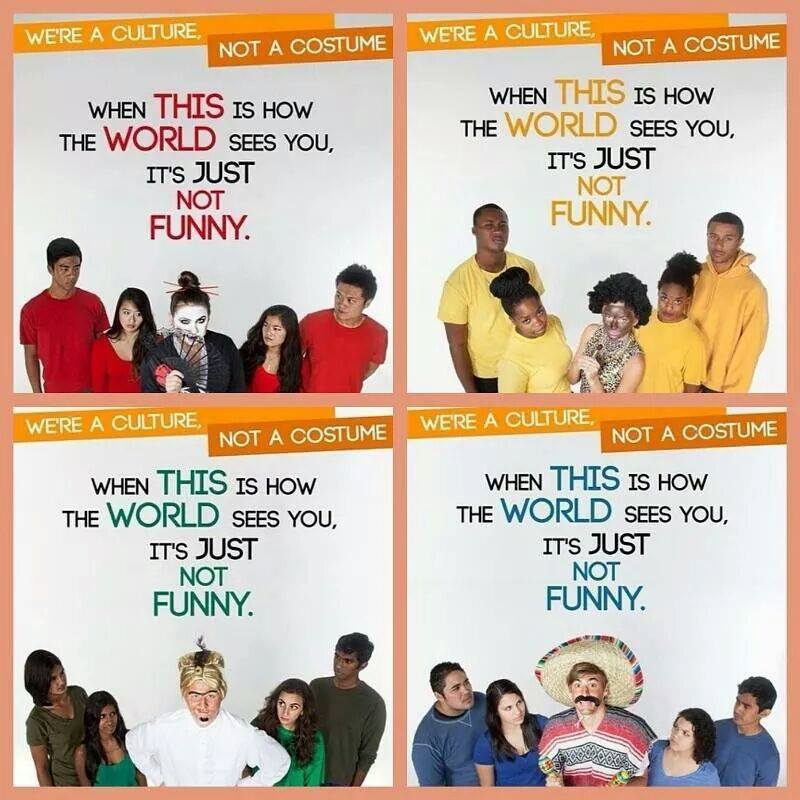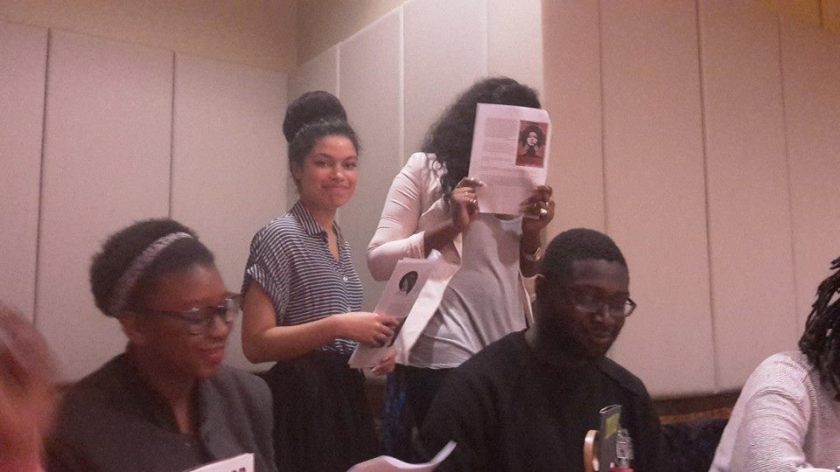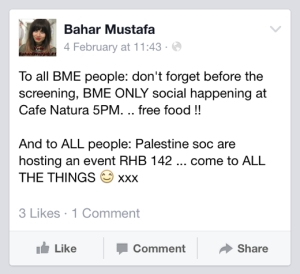As my time as a BME Student Campaigns Coordinator comes to an end, I find myself reflecting on what we have achieved.
The BME Liberation Campaign was set up to help Black and Minority Ethnic students to organise around issues of concern, and address discrimination affecting students and staff of African, Caribbean, Asian or Arab descent. The campaign also sought to educate the general student population on issues affecting BME students, and generally encourage discussion and change concerning issues of race and ethnicity. There are also liberation campaigns running at the University of Leeds for Women, LGBT students, and students with disabilities. These volunteer officers work closely with the Equality and Diversity officer on the student exec, to ensure that their work is well-rounded and all-encompassing.
The role was very flexible and open. We were able to choose what campaigns to focus on (led by students), and could decide how to organise and utilise allies/non-identifying members. We even changed the name we had been given by the union, from Black Students Campaign to BME Students Campaign, to better represent our goals, who we were, and who we wanted to work with.
Myself and the two other BME Student Campaign Coordinators achieved so much this year! We created a Facebook group for students who self-identify as BME and started an email newsletter.
We had multiple meetings, guest edited an issue of the student paper, helped to organise events for Black History Month and International Women’s week, and created a poster campaign about cultural appropriation during Halloween (using the picture below as our inspiration).
We also were involved in bringing the Ferguson tour to Leeds, and led an eye-opening workshop called “The Privilege Walk” at an event called Summat New. On top of that, we helped a student to set up a black feminist society at the University of Leeds, which had a great weekly reading group.
We signed petitions, attended training meetings, assisted a student in organising a vigil for the victims of Boko Haram attacks in Baga, and just generally got a lot done! Of course, there were areas we could have improved upon, and I hope that the role can grow, increase in importance, and reach even more students with each passing year.
Because of the work I was involved in this year, then, I was saddened to see the storm erupting around Bahar Mustafa, the diversity officer at Goldsmiths. For those of you unfamiliar with the situation, things kicked off in April, when an article in the Tab (an online student paper) was picked up by mainstream media, and boy did they run with it! The offending comments included:
Now, I don’t know about you, but I didn’t read these as aggressive or divisive posts. When organising ways to uplift and activate BME communities, sometimes it is most helpful if only BME people are present. She even said she would give allies things to do! What more do you want? The whole point of being an ally is only being involved when it is helpful so as not to take over the issue and make it about you! Being an ally involves learning and support. I mean, I’m trying to educate myself about trans issues at the moment. If there was a trans-only meeting going on where they were discussing their experiences or organising a private event, I wouldn’t get angry. I wouldn’t demand that they let me in. I wouldn’t say “THIS IS AGAINST EVERYTHING BRITISH UNIVERSITIES STAND FOR, HOW DARE YOU NOT INVITE ME!!!” I’d be like, cool, let me know when something comes up that I can help with. If not, fine. I’ll just keep learning and trying to support groups and causes which work with trans people/issues. And keep trying to analyse/combat/address/get rid of any transphobia I may express or have buried within my subconscious. And that is all.
I stand in solidarity with Bahar Mustafa because if people are attacking the right to a safe space, they are also attacking the work that I have done, and the work that many other BME officers do. I mean, our Facebook group was for BME only people. I think that it is our right, as students studying at institutionally white, eurocentric universities (this is not a criticism, this is a reality which we need to tackle, examine and work through together), which can struggle when it comes to making students of different races/ethnicity/cultures feeling fully equal and included (not just socially but in terms of the curriculum etc), to have spaces for us to discuss issues of discrimination. Sometimes, some people don’t feel comfortable enough to honestly say everything they feel about discrimination in front of people who are part of the dominant group in society/members of the group in society which broadly oppresses them. However, we obviously also worked with non-BME people. We organised events which were open to everyone. It is a delicate balance though, and it can be hard to keep everyone happy. I would say open and closed spaces are both important though. It is also important that university officers are held accountable, and that complaints against them are taken seriously. If people had felt I wasn’t doing my job this year, I could have been removed from my position. Leaders should not be allowed to say whatever they like. However, these complaints also have to be backed up by fact and consideration of social and historical context, as well as not totally witch-hunty!
What people seem to be missing is that there are many ‘safe spaces’ for other groups, although they are not labelled as such. And in society, you could say white heterosexual males, for example, are spoilt for choice when it comes to safe spaces – spaces which are built for them, spaces which protect their interests alone. A safe space doesn’t mean a private, secret room where you can trash talk anyone who doesn’t agree with what you believe and plot against ‘outsiders’. It just means a space where everyone is on the same page. It merely means a space for open discussion, where noone is at risk of being attacked or derided for their identity, and they can talk about their experiences as black, or lesbian, or disabled, or whatever, without being judged, belittled, or misunderstood by people who do not empathise with their issues, or have never experienced that kind of discrimination before. And where you are not slowed down by offensive questions which could have been avoided by some simple research before-hand. These are often spaces for discussion which facilitate activism and change; which have a positive, active purpose. They can also be recreational spaces. But anyway. That is all we are asking for. It does not affect anyone else negatively. It is not detrimental to those not included in said space. Unless FOMO is now a serious negative, detrimental thing to experience which warrants your butthurt-ness being placed above the concerns of people who aren’t yet seen as equal in society…
I think it is really sad and disappointing that Bahar could not organise an anti-racism event for BME women and non-binary people within an academic setting without being accused of reverse racism and reverse sexism. People have signed a petition for her to lose her job. People have said she was inciting racial hatred and committing an act of terrorism. Lecturing BME people about discrimination and segregation is extremely hypocritical. Whether people want to believe it or not, Black, Asian and Arab people often find themselves in spaces where they feel unwelcome, unsure, at risk – purely because of how they are dressed, the language they are speaking, the colour of their skin, what their hair looks like. This is a huge problem. Not a few people being left out of one one small BME meeting at one solitary university in London.
I get that people who are members of groups in society which are higher up in the social scale and more accepted/catered to by society/media/government etc. (white, heterosexual, cisgender, able bodied, middle-class) might be alarmed that minority groups are trying to organise, and creating words to describe negative experiences of oppression which they don’t understand. The ‘balance’ has been upset, and people are freaking out. But the balance NEEDS to be upset. Equality requires change. I get that activisty people can be a little annoying and holier-than-thou. Don’t I know it. Some people are all about using the right words and calling people out over tiny, questionable things (I am aware that what is ‘tiny’ is subjective) which waste time and energy, without ever stopping to wonder if they too have issues/prejudices to sort out, or wondering if they are creating discourse which leaves people out when it would be helpful for them to be included. Some liberal peeps seem to think that only ignorant working class people who don’t know the correct discourse/language can be racist. I imagine that people feel like they are being attacked by the PC police. (There is no PC police except the one which the media creates to infuriate you into disregarding everything BME people say about race because it must be an exaggeration and an attack on your liberty – when really, all BME people want is for you to believe their experiences, treat them like humans and let them create some damn equality!).
What we need are honest discussions where people are open and willing to learn and work together, and not constantly defensive. What we need are discussions about race which leave loyalty to ideology, and automatic suspicion of anything which a BME person says about race or their experiences of discrimination, at the door. And we also need a society which doesn’t instantly drag down, fear and castigate groups of Black people, or Asian (or whatever) people coming together as a group, in a private space, to uplift their identity, de-construct their oppression and oppressors, and create positive change for their communities.





